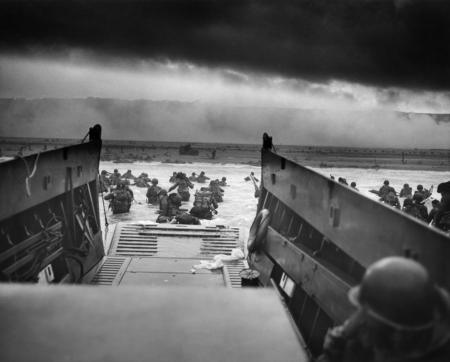Remembering the dead and sacrifice
In November, Americans set aside a day to honor veterans, with special emphasis on those who have served in wars.
For my part, I think of my father on Veterans Day. He did not seek out a military career, but the times in which he lived found him and forced him into it. He was drafted the day he graduated from college, became a captain in the U.S. Army, and served in Europe in World War II. Like many war veterans, he never talked about his experience there, even though he probably had a lot to say.
This year, I also prayed for my nephew, a Green Beret who is serving with his men somewhere in the Middle East (he's not allowed to say exactly where).
November is also a month when, as Catholics, we remember and pray for the dead. We do so from a place of hope, not despair. Death is not a tragedy for Christians. Those who die are not simply gone forever. They will rise again.
Yet even if the curse of death has been lifted, death remains a serious thing for us. It is a natural process that cannot be reversed by any natural means. When our friends and family members die, we can hope to see them in heaven, but we know we will not see them at Thanksgiving dinner. We are still sad to lose them and to know we will not hear their voices except perhaps in old home videos.
Our sadness about death is not inappropriate. Jesus wept at the death of his friend Lazarus, even though he knew that he would raise him from the dead once again. Christ knew that he would end death, but he left us with a clear message that he didn't expect us to find it easy for the living to handle.
The gravity of death is an important reason why we honor military veterans as we do. They risk death for their country. We also demand that they kill our enemies. This is no light matter, even in a perfectly just and justly waged war.
Soldiers are trained to kill, as they should and must. On the beaches of Normandy, the muscle-memory instilled through repetition and training probably kept many men alive. Some wars cannot be avoided. The recent terrorist attacks in France remind us that there are truly bad people in the world who are not interested in listening to reason or engaging in dialogue.
But no good person really wants to kill, any more than he wants to die. I have always believed this is one reason that veterans like my father are so hesitant to discuss their experience, no matter how honorably and justly they acquitted themselves in serving their country. Killing, even when it is justified and necessary, takes a toll on the human person and cannot be a pleasant thing to remember under any circumstances.
Our devotion to veterans, living and dead, is an appropriate and laudable part of America's civic virtue. We owe a great debt to those whom we ask to carry such heavy burdens for us.
And like our solicitude for the dead, our tributes to veterans are full of hope. We take the opportunity to hope for peace, to hope that others will be so dedicated to the common good, and to hope that our society and our government will honor its promises to veterans after they return.
---
Garvey is the president of The Catholic University of America in Washington.
- Garvey is president of The Catholic University of America in Washington, D.C.



















